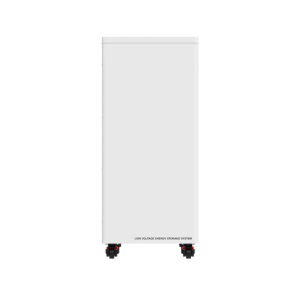目录
ToggleSolar power has emerged as the industry standard for environmentally friendly energy generation as the world moves toward renewable energy sources. The lithium-ion solar battery is one basic part that improves the proficiency and dependability of sun-oriented energy frameworks. This blog looks at the most important aspects of lithium-ion solar batteries, including their benefits, applications, and why they are becoming the most popular choice for storing solar energy.
What is a Lithium-Ion Solar Battery?
A lithium-ion solar battery is a rechargeable battery that stores solar panel-generated energy. It uses lithium particles as the essential charge transporter, taking into account proficient energy stockpiling and delivery. These batteries are ideal for solar energy applications due to their high energy density, long lifespan, and capacity to provide constant power.

How Do Lithium-Ion Solar Battery Work?
Lithium-ion solar batteries store energy during charging and discharging cycles by moving lithium ions between the anode and cathode inside the battery. The energy produced by solar panels is used to charge the battery. The battery’s stored energy is released to power homes, businesses, and other connected systems when solar energy is unavailable, such as at night or on cloudy days.
Key Advantages of Lithium-Ion Solar Batteries
More Power, Less Space:
Lithium-ion batteries, like lead-acid batteries, hold more energy in a smaller size than other types. This means they can hold more energy in a smaller and lighter size, making them very efficient and saving space.
Durability and Trustworthiness:
Lithium-ion batteries last a long time, usually over ten years, depending on how they are used and cared for. This makes them a great choice for storing solar energy without spending too much money.
Faster Charging in Energy Storage:
These batteries can charge more quickly than others, which helps store solar energy faster. This is especially helpful in places where the sun shines only occasionally because they collect the most energy when the sun is shining the brightest.
Easy to Use:
Lithium-ion solar batteries need very little upkeep compared to regular batteries. They don’t need frequent electrolyte additions, making battery care easier and cheaper.
Getting the Most Out of Energy:
Lithium-ion batteries work well for charging and using energy, usually about 95-98% of the time. This means that most of the solar energy saved in the battery can be used well, lowering energy waste.
Applications of Lithium-Ion Solar Battery
Lithium-ion solar batteries are flexible and can be used in many different ways, like:
Powering Homes:
People use lithium-ion solar batteries to save energy from their solar panels. This gives them dependable electricity, even when the main power is out or at night.
Helping Businesses:
Businesses use these batteries to save energy costs, rely less on outside power, and guarantee a steady electricity supply.
Remote Power Solutions:
Lithium-ion batteries help off-grid solar systems work well in areas without electricity from the grid, providing power for important needs.
Eco-Friendly Travel:
Solar power can be saved in lithium-ion batteries for electric cars, helping to create greener ways to travel.
0